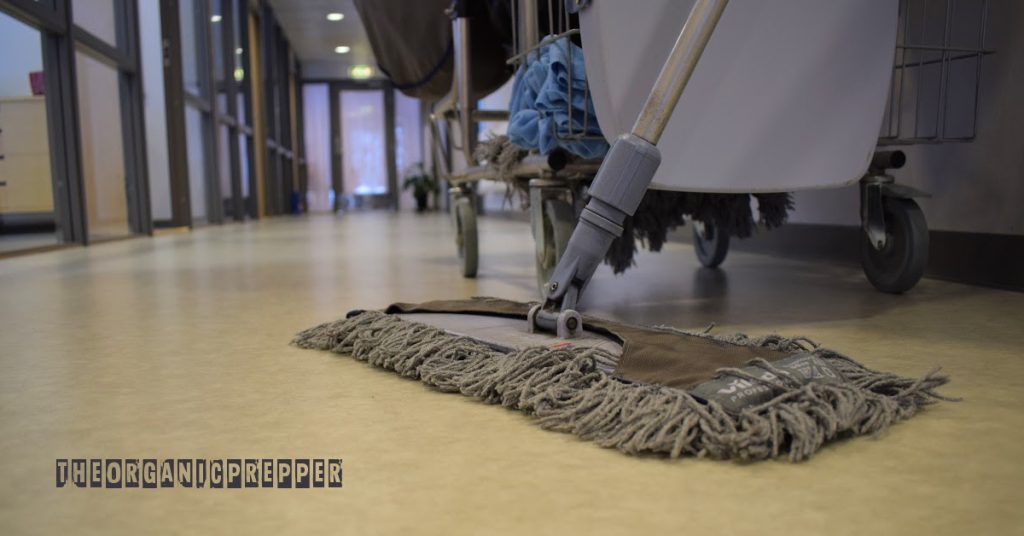by Daisy Luther, The Organic Prepper:

In the words of the WHO, the pandemic is finally over. The COVID-19 pandemic has been a life-changing experience for all of us. It has disrupted our daily routines, affected our economy, and left a long-lasting impact on our society. And I would say not exactly a positive one.
As we slowly emerge from the pandemic, many of us are left wondering what comes next. For those who have been preparing for emergencies, the answer is clear: continue preparing. Ratcheting up a few notches, for those of us who had the feeling something was coming back in 2018. Just check my FB page, and you will see.
TRUTH LIVES on at https://sgtreport.tv/
What did we learn?
The COVID-19 pandemic has taught us that we need to be prepared for unexpected events that can disrupt our lives drastically within weeks. The pandemic forced many of us to face situations we had never experienced before, such as business closures, job losses, shortages of supplies, and limitations on our freedoms that we had for granted. Well, I mean you in the free Western countries. I had to quit and bug out way before the pandemic crisis hit, as you probably already know.
We have seen how quickly our way of life can change and deteriorate.
On the positive side, plenty of people could understand why and how important it is to be prepared for emergencies now. They are secretly working on their preps, and surely they won’t make fun of preppers. Or not so loud.
Here’s an overview of what we dealt with.
If the average Joe had only a few days of food thanks to the JIT delivery system, the most capable could experiment by themselves with the fragility of the chain supply.
By the way, food for thought: a common situation was the fight over toilet paper in supermarkets. I watched with my own eyes one of these fights in Lima. It was amazing to see how the same situation repeated in Walmarts and some other stores around the world: Australia, the fight I witnessed in Peru, and armed robbery in Hong Kong.
During the pandemic, many people experienced shortages of essential supplies such as food, toilet paper, and cleaning products. To avoid this in the future, we must have enough supplies at home. As everyone’s needs are different, the volume of what you need is a variable that you will have to determine. This applies to non-perishable food, drinking water, essential medicines, cleaning products, and personal hygiene items. Calculate your consumption rate and plan according to this. (Check out Daisy’s book or online course for more guidance.)
One of the (more or less) unexpectedly severe consequences is the financial crisis the pandemic generated. It was to be expected some degree of effect, sure. However, this effect is still being patent.
That’s why another very important aspect to consider is financial preparedness. The COVID-19 pandemic has shown us how quickly our financial situation can change. Many people lost their jobs and suffered financial hardships during the pandemic. Those without an emergency fund set aside to cover unexpected expenses were in trouble to make ends meet. This being said, don´t forget to include a budget plan in place to manage your finances effectively.
What can we do now?
With such a preamble, my perception is this: it is now more important than ever to stay informed about the latest news and developments in the world.
The COVID-19 pandemic has taught us that things can change quickly, and being up-to-date on the latest news and situational evolution can help us make informed decisions and take necessary actions.
The core of my message is this: this will not be the last pandemic, nor is it as lethal as the next one. You can expect a real tragedy and a stronger and more violent response from law enforcement agencies to control the population.
For those who are new to the idea of preparedness, it is never too late to start. Preparation is a continuous and evolving process, and the COVID-19 pandemic has demonstrated that you never know when you will need to be prepared.
A necessary way to start is by assessing your current situation and identifying any areas where you may be vulnerable. Then, take steps to address those vulnerabilities and acquire the necessary skills and supplies to be ready for future emergencies.
Read More @ TheOrganicPrepper.ca



